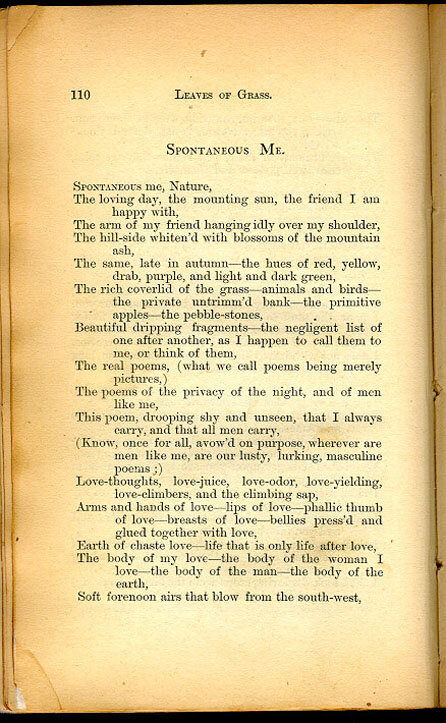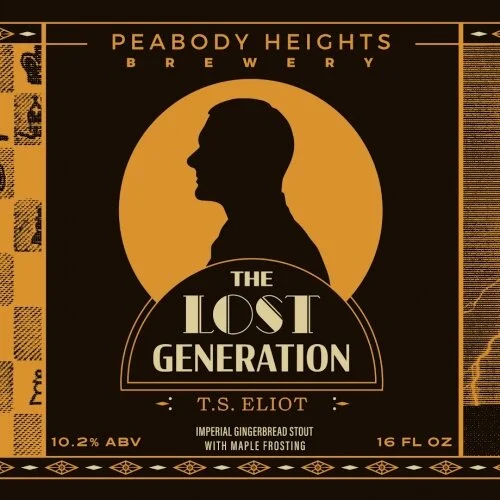"Spontaneous Me" and Bell's Leaves of Grass VII
The Beer
And so Bell’s Leaves of Grass series comes to a close. I started covering this seven-beer series when I still lived in Ohio, just one state removed from Bell’s, up in Michigan. During the series’ run, though, I moved to DC and so missed beers V and VI due to distributing issues. So I was happy to find VII in my local beer shop, Sherry’s.
The label describes Spontaneous Me like this:
The seventh and final release celebrating a literary classic […] Inspired directly by nature, this Wild American Ale is fermented with wild yeast harvested from the Bell’s Beer Garden to evoke tart, earthy, and funky tasting notes.
It makes sense that a wild-yeast beer would take its name from a beer named after spontaneity (here’s more on spontaneous fermentation, a process that relies on the wild yeasty beasties floating around in the air and settling on the beer), and those tasting notes are spot on. You can smell the funk from a mile away, even as you’re pouring it from the bottle into a glass. Tartness is certainly the first thing to hit your tongue, scrubbed up by a zippy carbonation. Personally, my love of “earthy” and “funky” depends on the kind of earth and funk that we’re talking about. Grass? Mold? Barnyard? Hay? Dirt? Animal? Sweat? The “earthy” notes of Spontaneous Me, I find very subtle. Definitely no barnyard (nor my favorite adjective for beer aroma: “horse blanket” - lookin’ at you, brettanomyces). Just that subtle “funk” that we attribute to wild yeast and kind of had to come up with a catch-all word to describe. I’d call it a good “gateway” wild-yeast beer - just enough funk to start to learn what we mean when we apply that adjective to beer, but not enough to scare anyone away by suggesting they sip on a horse blanket or such on barnyard hay.
The Poem
I wonder if Bell’s is trusting that people won’t read the Whitman poems for which these beers are title - or if they’re hoping to drive people to read them. Because Whitman’s “Spontaneous Me” is straight-up racy, whether you’re reading it in the 19th or 21st century. Here’s a link to the poem in its entirety, and here a few snippets so you get my drift:
Love-thoughts, love-juice, love-odor, love-yielding, love-climbers, and the climbing sap,
Arms and hands of love, lips of love, phallic thumb of love, breasts of love, bellies press’d and glued together with love,
Earth of chaste love, life that is only life after love,
The body of my love, the body of the woman I love, the body of the man, the body of the earth
Even the bees get all “birds and bees” in this poem:
The hairy wild-bee that murmurs and hankers up and down, that gripes the full-grown lady-flower, curves upon her with amorous firm legs, takes his will of her, and holds himself tremulous and tight till he is satisfied
I mean. Whitman’s always full of love for his fellow man, nature, and all things sensory, but I don’t know that I’ve read a Whitman poem quite that is quite so sensual as this one is.
The poem, the fifth in the “Children of Adam” sequence of Leaves of Grass, is an ode to (pro)creation in its broadest sense, as its eponymous opening line suggests: “Spontaneous me, Nature, / The loving day, the mounting sun, the friend I am happy with.” It’s an ode to people being spontaneous, nature being spontaneous, and the outcome when people and nature are spontaneous together. And why isn’t that the most fitting way to conceive of beer: as the miracle that it seemed before we really understood how fermentation works? You just leave this sugary water out until one day, it’s transmogrified into an entirely different liquid: beer, wine, spirit. Wild yeast just floating around, unseen, in the air until they find a place to settle in, feast, and create, become tangible, perhaps incarnate when we consume it, drinking it into ourselves. There is something magical in this process - and also so ordinary, as Whitman acknowledges in the closing lines of “Spontaneous Me,” in which Nature closes the poem with the following paradoxically careless and creative valediction:
The oath of procreation I have sworn, my Adamic and fresh daughters, The greed that eats me day and night with hungry gnaw, till I saturate what shall produce boys to fill my place when I am through, The wholesome relief, repose, content, And this bunch pluck’d at random from myself, It has done its work—I tossed it carelessly to fall where it may.







